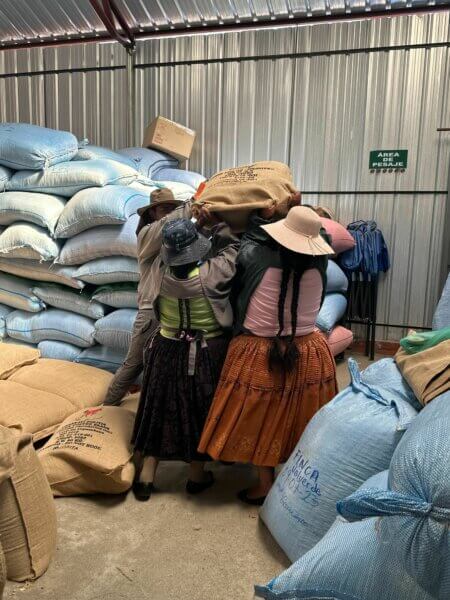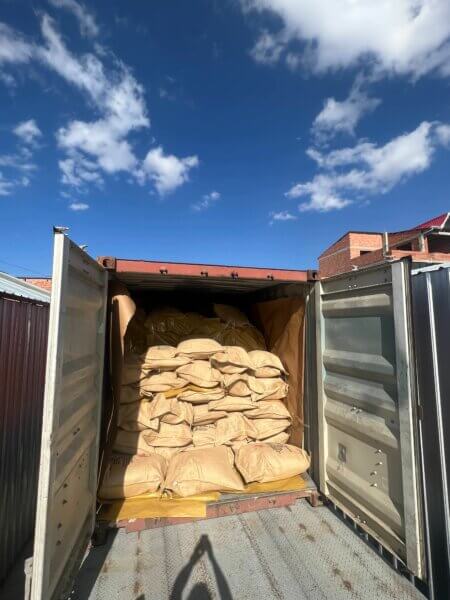If you’ve known us for long, you know our Bolivia roots run deep: over 15 years deep, to be exact. It’s an origin we’ve bought from in the past (the aforementioned 15 years extends back even before Red Fox officially existed), but the disorganization and subsequent collapse of some large cooperatives in the area made it impossible to source within our model on traceability and quality levels. But we always circle back. More so than any other, it’s an origin that’s always on our radar.
Volume is one thing that makes superb Bolivian coffee intrinsically special. It’s such a rare and coveted coffee in the specialty world because there just isn’t much of it to be had, period. Whereas Peru is going to produce close to 4 million bags this year total, Bolivia will produce about 40,000, way up from a rock bottom low about 5 years ago. In Bolivia, all gems are rare gems.
In that context, our reentry foray this year represented an incredibly small volume that we won’t be able to offer on any kind of scale. But, it’s time to get excited about this origin again, because the inroads we made this year represent a valuable future here.

Beyond the length of our relationships in Bolivia, part of the Red Fox connection is that this area of Bolivia, Caranavi, has more in common culturally and historically with Puno, Peru, than Puno has with the rest of Peru. Historically, the indigenous people of this area are of the Aymara people. Putina Punco, where we have tons of history and connection, is right on the Bolivia border and extended families will often include members on both sides. Puno produces some of the most spectacular coffees in all of Peru, and like Bolivia, they’re rare and incredibly coveted, as well as difficult to source. Both are over a mile high and feature similar but unique microclimates with hot summer days and cool, crisp nights. Both promise the highest of high quality.
There are key differences, too. Whereas Puno has distinct old Bourbon washed coffees, the growing regions we’re working in in Bolivia have a swath of varieties including the nouveau: Java and Geisha as well as Caturra and Typica. And, unlike the immaculate washed processes that dominate Puno, what we see in Caranavi includes not just pristine washed coffee but also distinct and articulate anaerobic naturals. While these offerings are exciting, we will be placing our primary focus—as always—on elegant, nuanced top-quality washed lots from Caranavi, Illimani, and beyond.
Beyond the Puno connection, we’re also geographically close. Our lab in Lima wasn’t just made for Peru; it’s designed as a hub for the region, which we always hoped would once again include Bolivia. Whereas accessing the nearby parts of Puno means either a flight, a long drive, and a hike, or an overnight bus, a long drive, and a hike, the roads into Caranavi are recently rebuilt and under 4 hours drive from La Paz, Bolivia’s capital. The increased accessibility is a huge perk of working in this area.

While we’re interested in these coffees for their quality and rarity, we’re even more interested in creating more competition and opportunity for indigenous smallholder producers in the area who previously haven’t had the best top-tier specialty market access. That’s at the crux of our vision here. We look forward to sharing this vision more and more widely in the coming years. Meanwhile, we’re here, doing the work and building key inroads to bring this unique origin into the top-tier specialty market.
| Interested in sourcing coffee with us? Reach out at info@redfoxcoffeemerchants.com. To learn more about our work, check out our journal and follow us on Instagram @redfoxcoffeemerchants, Twitter @redfoxcoffee, Spotify, and YouTube. |
